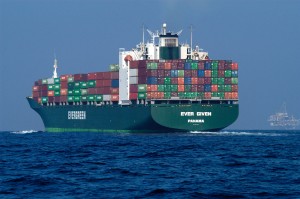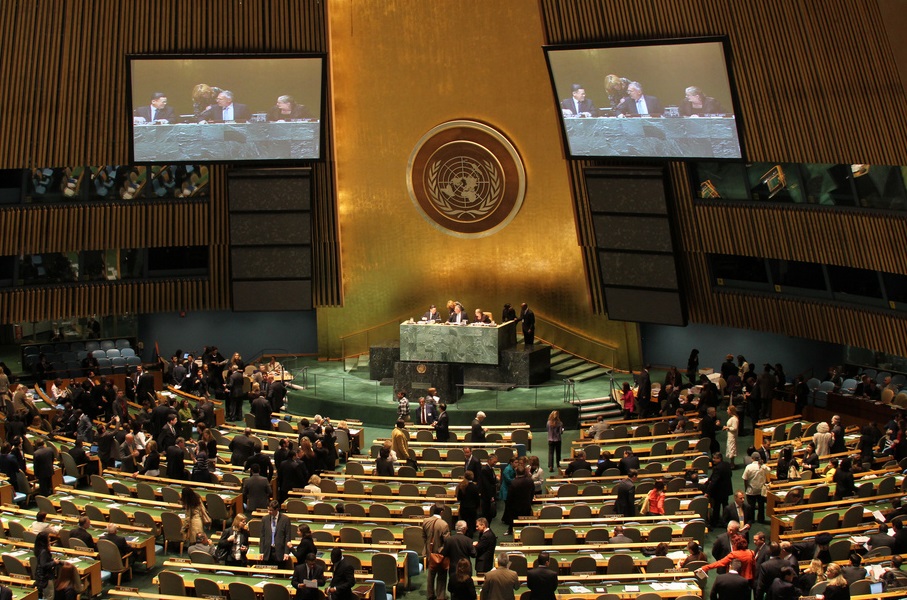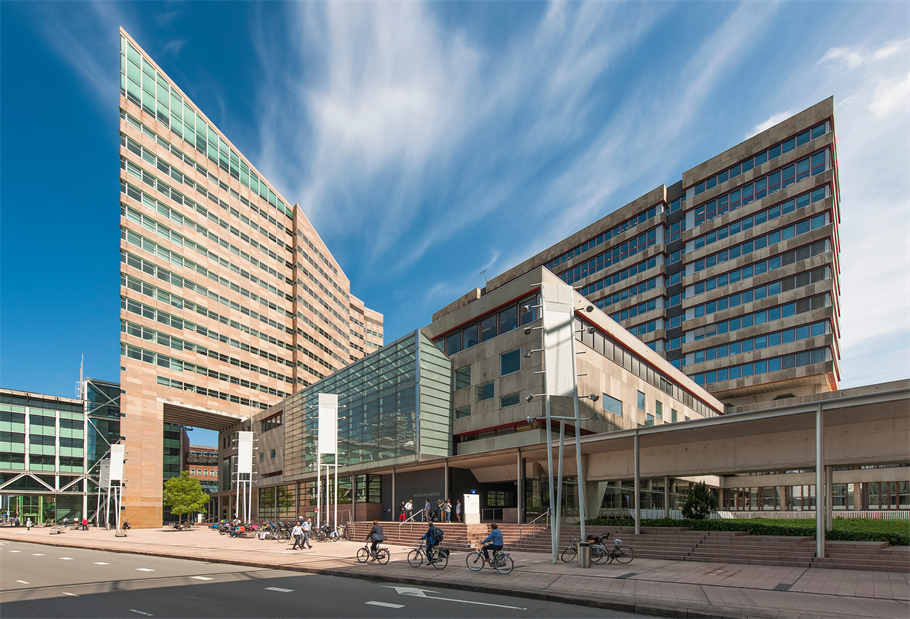Meredith Wilensky, Esq.
2013-2014 Fellow
 SCCCL has been on the lookout at the Lima climate negotiations for developments related to reducing GHG emissions from international shipping. The Kyoto Protocol excluded shipping emissions from reductions targets.[1] Instead, the Protocol directed countries to work through the International Maritime Organization (IMO), the United Nations’ specialized agency on shipping, to limit emissions from this sector.
SCCCL has been on the lookout at the Lima climate negotiations for developments related to reducing GHG emissions from international shipping. The Kyoto Protocol excluded shipping emissions from reductions targets.[1] Instead, the Protocol directed countries to work through the International Maritime Organization (IMO), the United Nations’ specialized agency on shipping, to limit emissions from this sector.
Efforts by the IMO to address shipping emissions have been underwhelming. The agency has developed two emissions reductions measures: the Energy Efficiency Design Index (EEDI) is a technical measure that sets mandatory efficiency requirements for new ships, and the Ship Energy Efficiency Management Plan (SEEMP) is an operational management tool to improve efficiency primarily through fleet management. While these measures will improve overall shipping efficiency, the IMO has acknowledged that they will be insufficient to prevent a future rise in emissions from the sector. The limited effect of the measures is due in part to their focus on new ships. Existing ships have a long life expectancy and will be responsible for the majority of emissions from the sector in coming decades. The IMO’s unambitious measures inspired SCCCL’s white paper published earlier this year addressing state authority to regulate shipping emissions beyond international standards.
Discussions in Lima are in progress and heavily focused on paving the way for an effective 2015 agreement. There is little to suggest that shipping emissions will be included in the upcoming agreement. However, the issue of shipping emissions has made a brief appearance at the COP. Edmund Hughes, Head of IMO’s Working Group on Air Pollution and Energy Efficiency addressed the Subsidiary Body for Scientific and Technological Advice (SBSTA) Plenary, stating that the IMO has been effectively addressing emissions from ships.
In addition, the IMO held a side event to discuss the agency’s efforts to address GHG emissions. Hughes, representing the IMO at the event, focused his discussion on the EEDI and SEEMP and the findings of the IMO’s Third GHG Study released earlier this year. The Third GHG study was based on improved surveillance data allowing for a more accurate assessment of emissions across the sector. The study found that the shipping sector was responsible for 2.2% of global emissions in 2012, down from 2.8% in 2007. This reduction is primarily a product of the economic downturn, which has led to reduced demand for shipping and resulted in increased “slow steaming,” the practice of reducing speeds to save fuel expenditures.
This recent trend, however, is not expected to last. The GHG study projects dramatic increases in emissions from the sector, likely between 50 and 250% by 2050. Although I pressed Hughes to disclose IMO’s anticipated efforts to curb growth of emissions form the sector, he had little to report on the IMO’s next steps. For example, since the practice of slow steaming is tied to the recent decrease in demand for shipping, the practice may be abandoned once demand rises again. When asked if the IMO is taking any action to encourage the continued use of slow steaming, Hughes noted challenges to regulating speed, such as business and insurance contracts that may include provisions regarding ships’ speed or timeframe for a specific route. In addition, Hughes showed no sign that the IMO was considering addressing emissions from existing ships; on the contrary, Hughes noted that because retrofitting can be costly, it would be unpopular and potentially unfeasible given the current state of the economy.
While Hughes was quick to highlight the successes of the IMO in developing the EEDI and SEEMP, the event did little to instill confidence in the IMO’s dedication to continued progress. For me, the event reaffirmed the importance of state action to fill the gaps where international efforts have fallen short.
[1] Aviation was also excluded, and the International Civil Aviation Organization (ICAO) was tasked with working to reduce emissions from the sector.




